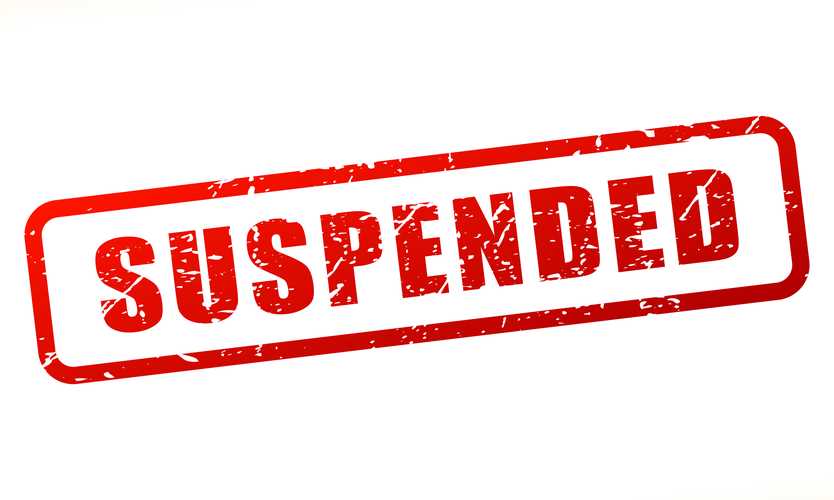
The analogy “you reap what you sow” powerfully encapsulates a universal truth ignored by many modern development models: that exploitative management—whether of nature, people, or society—inevitably leads to crisis.
Ecological degradation, climate change, social fragmentation, and economic injustice are not anomalies but the direct consequences of unsustainable practices driven by profit at the expense of ethics.
As nature reacts to exploitation with floods, pollution, and resource scarcity, society too responds to poor labor practices with mental health crises, broken families, and disillusionment.
True development must enhance lives and freedoms—not just inflate GDP. Therefore, if management desires a future marked by sustainability, justice, and human well-being, it must shift from short-term profit-seeking to ethical, people-centered, and environmentally conscious leadership. Only by sowing respect for nature, dignity for labor, and care for community can we hope to harvest genuine progress.
Nature’s reproach to modern development
“It is simply unnatural to sow corn and expect to reap cocoa; neither can a dog give birth to a lion.” This simple yet profound analogy captures a fundamental principle that underpins both natural law and social reality: YOU REAP WHAT YOU SOW.
In ignoring this universal law, modern development models—especially those driven by exploitative management practices—have set themselves at odds with both nature and human society. The consequences, now too glaring to ignore, include ecological degradation, social fragmentation, and economic injustice.
Ecology teaches us that natural systems are governed by interdependence, cycles, and feedback. When a system is disturbed, it reacts. The consequences of industrialization, rapid urbanization, and unrestrained consumption—often in the name of “development”—are evident today in climate change, biodiversity loss, and pollution. These are not random phenomena but feedback responses to unsustainable human behavior.
As Rachel Carson warned in Silent Spring (1962): “In nature, nothing exists alone. Whatever we do to nature, we ultimately do to ourselves.” When management depletes forests, dumps toxic waste into rivers, or fills the atmosphere with greenhouse gases, it is sowing environmental destruction.
The harvest comes in the form of floods, food insecurity, disease outbreaks, and water scarcity—affecting both business and society. According to the Intergovernmental Panel on Climate Change (IPCC), human-caused climate change is “widespread, rapid, and intensifying,” largely due to unsustainable land use and energy systems.
Yet, businesses that rely on natural capital rarely account for the long-term consequences of its exploitation. The World Bank has repeatedly highlighted the economic cost of environmental neglect, estimating that pollution and resource degradation cost low- and middle-income countries over 8% of GDP annually.
Just as mismanaging the environment yields ecological crisis, mismanaging people—treating human beings as mere economic units—yields broken societies. When employees are overworked, underpaid, and stripped of dignity, creativity and innovation are stifled, and mental health issues rise. According to the World Health Organization (WHO), depression and anxiety cost the global economy over $1 trillion annually in lost productivity.
Frederick Herzberg, in his two-factor theory, stressed that true motivation comes from intrinsic satisfaction—not just external rewards. But modern managerial practices often ignore such insights, focusing narrowly on short-term gains. This leads to disengaged employees, toxic work cultures, and high employee turnover—all of which feed into wider social issues such as family breakdown, crime, and disillusionment.
In the words of Peter Drucker, the father of modern management: “Management is doing things right; leadership is doing the right things.” Yet, when “doing things right” means cutting labor costs and externalizing environmental liabilities to boost shareholder returns, we must question whether we are sowing weeds and hoping for wheat.
Modern marketing has perfected the art of turning wants into perceived needs. The relentless push to consume—often beyond necessity—has created a generation of consumers burdened with debt, anxiety, and dissatisfaction. The United Nations Environment Programme (UNEP) warns that the current global consumption and production patterns are unsustainable, contributing significantly to global warming, waste, and resource scarcity.
Moreover, customer trust is eroded when companies prioritize profits over product quality, safety, and truth in advertising. This results not just in lawsuits and brand damage, but also in a cynical, fragmented society.
The core question—“Is this true development?”—demands sober reflection. Development is not merely GDP growth, industrial expansion, or technological advancement. It is the holistic improvement of human life in harmony with the planet, ensuring that both current and future generations can live with dignity, health, and opportunity.
“Development has to be more concerned with enhancing the lives we lead and the freedoms we enjoy.” (Amartya Sen) By this standard, the current paradigm—characterized by climate change, widespread inequality, alienated labor, and eroding moral values—cannot be called “development” in any meaningful sense. It is an illusion of progress, a facade of prosperity built on the erosion of the very foundations that make life livable and meaningful.
Nature and wisdom agree: you cannot plant injustice and expect peace; exploit people and expect loyalty; degrade the environment and expect sustainability. If management at both corporate and national levels wants to reap genuine development—characterized by justice, equity, sustainability, and well-being—then it must begin by sowing the right seeds: Respect for Nature, Dignity for Labor, Honesty In Markets, And Care For Community.
“When the roots are deep, there is no reason to fear the wind.” It’s time for management to return to the roots of ethical, people-centered, and ecologically grounded leadership—for only then can the harvest be truly worthwhile.

Please let’s interact: 1 (914) 259-0242
The author is a dynamic entrepreneur and the Founder and Group CEO of Groupe Soleil Vision, made up of Soleil Consults (US), LLC, NubianBiz.com and Soleil Publications. He has an extensive background In Strategy, Management, Entrepreneurship, Premium Audit Advisory, And Web Consulting. With professional experiences spanning both Ghana and the United States, Jules has developed a reputation as a thought leader in fields such as corporate governance, leadership, e-commerce, and customer service. His publications explore a variety of topics, including economics, information technology, marketing and branding, making him a prominent voice in discussions on development and business innovation across Africa. Through NubianBiz.com, he actively champions intra-African trade and technology-driven growth to empower SMEs across the continent?.
The post The Business Strategy Analyst with Jules Nartey-Tokoli: Reimagining Management: The prerequisite for true economic development (IV) appeared first on The Business & Financial Times.
Read Full Story













Facebook
Twitter
Pinterest
Instagram
Google+
YouTube
LinkedIn
RSS